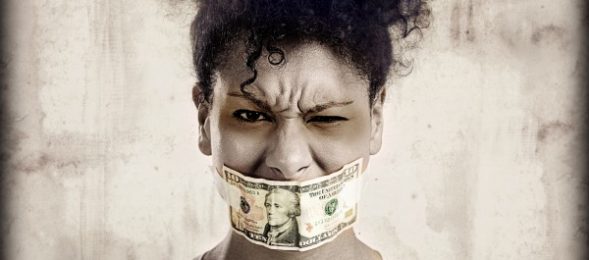By Aja McClanahan
Recent events in Ferguson and Baltimore have been bitter reminders for Black America: there’s still more work to do for justice and equality for people of all races in our country. Black people are clearly angry, frustrated and demoralized by the quality of life gap that still persists between Black and White America.
Without being all political and casting blame, I’d like to spend some time talking about things we can do in the Black community to help improve our odds of success in America. I definitely believe in justice through fair legislation, but while we wait for those fixes, let’s get started on what is immediately within grasp to change.
Economic empowerment is one of those phrases thrown around our communities without much substance behind it. What most people glean from this message is that they should start a business or own something. That’s one piece of the puzzle, but that’s not where it always starts.
The truth is that many Black Americans’ are so deep in debt with little savings that there’s not much left for business building, investing in black-owned business or anything else aside from survival. Economic empowerment starts with personal financial discipline. It’s not sexy, exciting or easy but necessary.
Getting out of debt is one of the most effective wealth building tools that the Black family and community can use to build net worth and economic independence.
For the size of our population, we have a lot of buying power. A recent report by the Nieslen Company shows a promising picture of upward mobility for the average African American due to increased education and related earnings, yet the median net worth of the Black household is just above $5,000!
What’s more is that study after study confirms that we are constantly putting our money into depreciating “stuff” rather than income producing assets like businesses, inventions, securities or real-estate.
This is why we need to get out of debt, folks. As a people, we’ve come a long, long way but there’s so much more to do. We need to change our consumerist mentality and turn that into saving power.
Even though racism and disparity is all around us, we can all agree that we are in a time in history where access to wealth building resources are at an all time high for all people. But again, you can’t take advantage of this if you your income is tied up servicing debt!
Getting out of debt sounds impossible, but at this stage of the game it’s something we must do. We can’t go on generation after generation staying in modern day slavery to things. You know-the car, the house, the clothes, the vacations. These are things that people often buy to display their status and create the perception of wealth.
But true wealth works for you and gives you freedom to do things that mean something to you: build up the community, invest in a dream, spend more time with your kids and so much more.
If you think it can’t be done. Let me tell you that it can. We completely paid off all of our bills in 2013. We pay no one a house note, car note, payments on student loans or anything else. We even moved to “the ‘hood” because houses and taxes are much more inexpensive.
The most exhilarating thing is that we can now save money and build wealth, not just for us but also for our children and their children and the community we live in.
With some determination and financial discipline, you can change your family’s financial outlook for good.
You can impact your community and the world for good. But it has to start with you and your decision to be done with debt so you can build wealth.
BMWK, Are you in?
Aja McClanahan is database consultant and the main contributor at www.principlesofincrease.com where she writes about faith, family and financial freedom. She is the author of Debt Free in 24 Hours and teaches frequently on financial topics in her community, Englewood, Chicago. She resides there with her husband of 10 years and two daughters.
